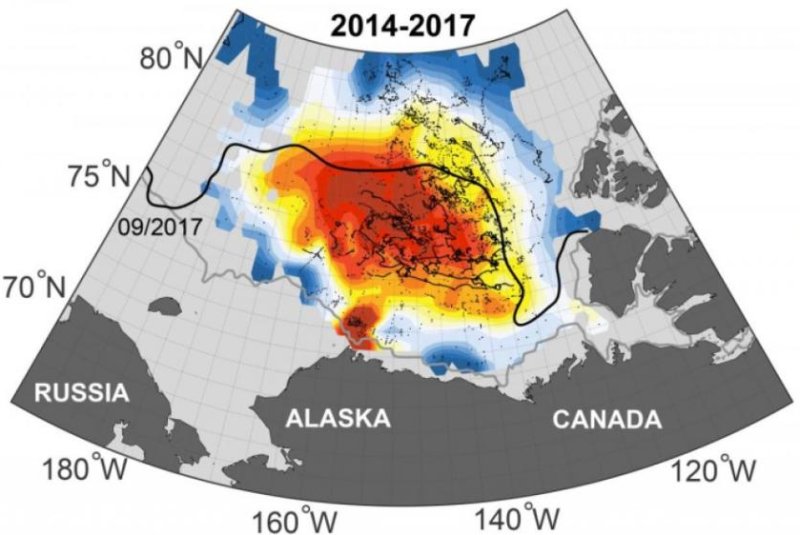The heat has been accumulating beneath the Arctic interior for a few decades. Photo by Yale University
Aug. 30 (UPI) -- Arctic ice faces a threat from within, according to a new study by researchers at Yale University.
Scientists have identified a mass of "archived" heat trapped beneath the Arctic surface. The mass of warm water originated from hundreds of miles away, but has infiltrated the Arctic interior.
"We document a striking ocean warming in one of the main basins of the interior Arctic Ocean, the Canadian Basin," Mary-Louise Timmermans, a professor of geology and geophysics at Yale, said in a news release.
Over the last three decades, the amount of heat in the Canadian Basin's upper ocean has doubled. Timmermans and her colleagues traced the heat source to waters a few hundred miles south, where sea ice losses have left the surface of the ocean exposed to the summer sun. Arctic winds are pushing the warm water to the north.
The latest research suggests the warmth is being pushed below surface waters and into the Arctic interior, where it has been accumulating for the last 30 years.
"This means the effects of sea-ice loss are not limited to the ice-free regions themselves, but also lead to increased heat accumulation in the interior of the Arctic Ocean that can have climate effects well beyond the summer season," Timmermans said. "Presently this heat is trapped below the surface layer. Should it be mixed up to the surface, there is enough heat to entirely melt the sea-ice pack that covers this region for most of the year."
Researchers warn that should the accumulated heat lurking beneath the surface of the Arctic interior rise to the surface, the entirety of the region's sea ice pack could melt away.
Timmermans and her colleagues described their discovery of the heat mass this week in the journal Science Advances.















